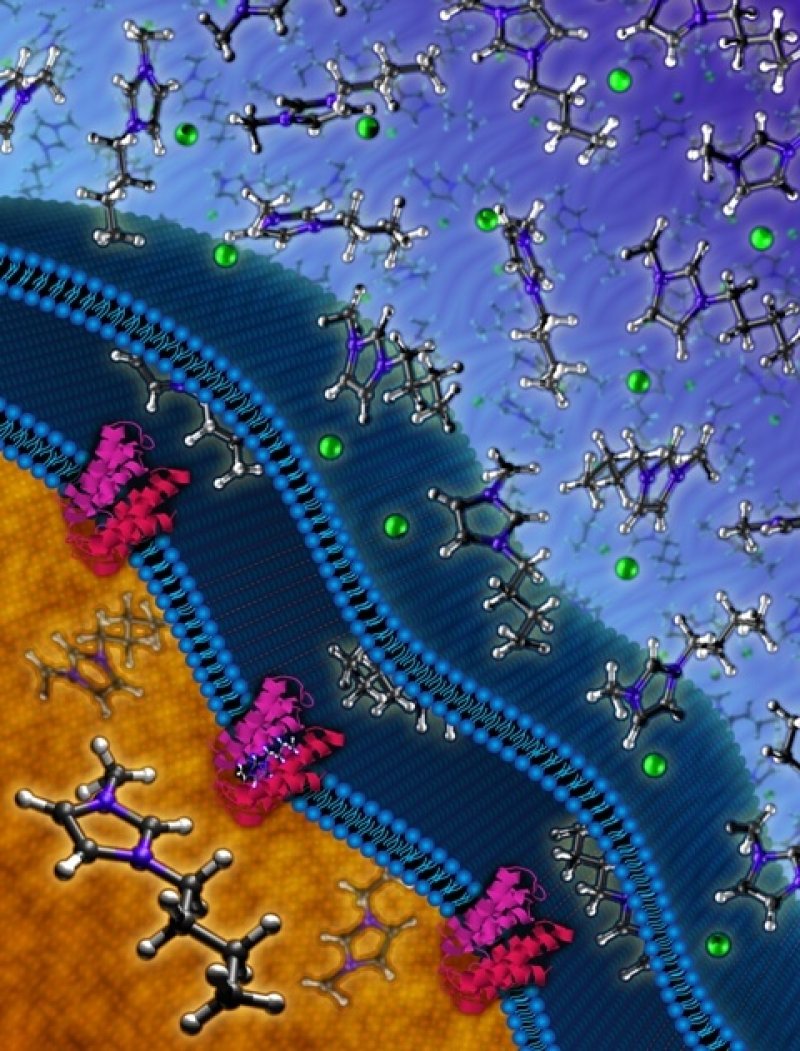Researchers with the U.S. Department of Energy Joint BioEnergy Institute eliminated a bottleneck in biofuels production using genetic engineering — what critics call ‘Frankenfuel.’
Biofuels are a logical arena for genetic engineering to flex its muscle. While drivers are beginning to adopt electric vehicles, conventional vehicles that run on liquid fuels still make up the overwhelming majority of the world’s wheels. Biofuels are the best option to keep those cars running without significant modifications while minimizing carbon dioxide emissions.
But conventional corn-based biofuels are inefficient and face conflicts with food supply. Today the alcohol is made by fermenting sugarcane or corn. What about focusing on materials that are low in sugar but rich in cellulose: corn husks, straw and other waste that farmers and the rest of the agricultural industry discard by the ton. Or a waste product excreted by algae or another lifeform? As reported by Science 2.0:
… advanced biofuels synthesized from the cellulosic biomass in non-food plants may represent a clean, green, renewable alternative to today’s gasoline, diesel and jet fuels, though it is yet to be seen if they can avoid the protests associated the groups against biological and energy science.
Currently, methods to create biofuels from natural feedstocks are inefficient and expensive. Here’s where genetic engineering comes in. GE tools can be used to make new microbes or enzymes that are able to digest the hard cellulosic biomass efficiently. They could also be used to make the plants’ agricultural waste easier to digest. They could even, according to this program by the DoE called PETRO, be used to improve the efficiency of photosynthesis in plants. As Sarah Laskow described it in this GOOD magazine article:
The hope for these genetically engineered crops is that they’ll cause biofuels to make a modicum of financial and environmental sense. The end goal in every case is to extract more fuel per acre, leaving more space and less competition for food crops.
And she adds an interesting point about the acronym PETRO, which stands for Plants Engineered To Replace Oil:
Maybe the department is hoping that if they avoid the words “genetically modified,” no one will freak out about this bent of research … Americans don’t love the idea of genetically modified crops. Or, perhaps more accurately, we don’t love the giant corporations that produce their seeds and use their patents to bully farmers.
According to a study in Science, researchers at the University of California, Berkeley are experimenting with brewer’s yeast by inserting genes from a type of fungus that can digest cellulose. The fungus, Neurospora crassa, can’t produce alcohol. But the researchers conducted a genome-wide analysis of the critter and found a family of genes that appeared to facilitate the transport of more complex sugars into the cell.
When the right genes were spliced into brewer’s yeast (Saccharomyces cerevisiae), two of the resulting strains could grow on cellodextrin as well as the usual glucose. One strain produced 60 percent more alcohol than normal yeast when grown on a type of cellodextrin known as cellobiose.
“The use of these cellodextrin transporters is not limited to yeast that makes ethanol,” said Jamie Cate, a member of the Berkeley team, in a news release. “They could be used in any yeast that’s been engineered to make, for example, other alcohols or jet fuel substitutes.”
They’re not the only ones working to improve biofuel production through genetic engineering. Others — such as Bay Area-based Amyris Biotechnologies, Inc. and Seattle-based Targeted Growth — are also turning to biotech as a way to either create living factories or to spur feedstock growth. It’s also one of the goals that prompted genetic pioneer J. Craig Venter to focus on developing synthetic cells. In this video here, Venter talks about the potential for designing algae that can produce oil. He has said he has a preliminary deal with ExxonMobil.
But no one is going to the bank with this technology just yet. As the Wall Street Journal has previously noted, technological and ethical challenges remains:
Beyond irresistible sci-fi doomsday scenarios, the biotech question raises a lot of new issues about biofuel feedstock–not the least of which is cost. Not only is biotech an expensive endeavor, but keeping organisms enclosed, as opposed to living in open ponds, could significantly hamper the economics of the business, unless their yield is extraordinarily higher than that of natural creatures.
XiaoZhi Lim is a freelance journalist based in Singapore.
Jon Entine, executive director of the Genetic Literacy Project, is a Senior Fellow at the Institute for Food and Agricultural Literacy, University of California-Davis. Follow @JonEntine on Twitter































